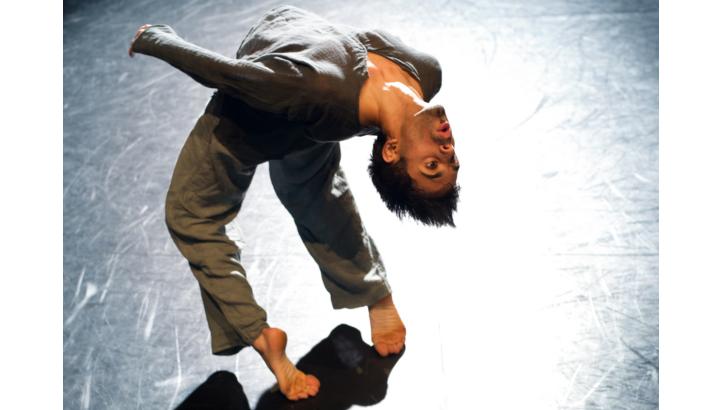Dance Review: Aakash Odedra's transcendent performance
Sign up now: Get ST's newsletters delivered to your inbox

Aakash Odedra presenting his celebrated work Rising.
PHOTO: JADE GROUP INTERNATIONAL
Germaine Cheng
Follow topic:
Review: dance
RISING
Aakash Odedra Company
Samaparna - The Asian Festival of Classical Dance
Esplanade Theatre Studio
Last Saturday
To assemble three of Europe's A-list contemporary dance choreographers in one programme is no mean feat, much less have them choreograph solos on you.
Dancer-choreographer Aakash Odedra who headlines the fourth edition of Samarpana - the Asian Festival of Classical Dance, is one of Britain's most promising dance artists and in the quadruple bill of Rising, he captivates with complete physical mastery in solos by Akram Khan, Russell Maliphant, Sidi Larbi Cherkaoui and himself.
Even though he works primarily in the canon of contemporary dance, Odedra trained in the classical Indian dance forms of kathak and bharatanatyam. He combines power and gentleness, discipline and freedom in an astonishing package of vibrating mercurial energy that is showcased throughout the evening. While each of the contemporary dance choreographers employ largely similar vocabulary from Odedra's training, they illuminate its various qualities in vastly different ways.
In Cherkaoui's Constellation, a dozen lightbulbs suspended from the ceiling sculpt the stage space as they are each set in pendulum motion by Odedra. They dance around the moving sculpture of Odedra's body as he morphs between elegant contortions in swooping arcs and controlled descents to the floor.
The remarkable attention to detail in the hands that is enforced through the multitude of specific gestures in classical Indian dance comes to the fore in Maliphant's CUT, dramatically lit by Michael Hulls. Here, the light is like a translucent screen which Odedra's hands penetrate as they reach toward us with a beguiling blend of delicacy and boldness. His hands show expanse in minutiae - they are like a conductor's, impelling his body to undulate and pulsate with the rhythm of Andy Cowton's locomotive soundscape.
Khan's solo, In the Shadow of Man, highlights Odedra's incredible upper body flexibility as his shoulder blades, in grotesque protrusion, threaten to swallow him. These seem to represent his inner beast, rearing its head in the form of low crouches, flailing limbs and harsh screaming noises.
Jocelyn Pook's layered soundtrack of ominous strings reminds us of this terrifying truth we have witnessed, even if Odedra straightens back up into the man we know.
All three of the aforementioned pieces however, are outweighed by the effortlessly poised Nritta, which kickstarts the evening, a kathak solo by Odedra of pure kinetic brilliance.
It begins as it ends, with a meditative ritual, almost underscoring the sacredness of the dancing in between. He leaps with the agility of a cat and stomps emphatically to the polyrhythmical music, emanating a quiet confidence.
He does not accelerate or decelerate, preternaturally halting and taking flight in a split second. A exhilarating masterclass in speed and dexterity, Nritta is an ephemeral, precious experience of sheer grace which transcends the work of the giants on the same programme.

